Vol. 70, September 2025
Have you published something new in Global Urban History? Are you hosting a conference, workshop, or event? We'd like our members to know!
GUHP is a member-supported organization.
| The Urban History Association 2025 Award Winners
The Urban History Association has announced their 2025 Award Winners for prizes including Best Book in North American Urban History, the Lizabeth Cohen Prize for the Best Book on Cities and Political Power, the Joe William Trotter, Jr. Prize for Best First Book in Urban History, and many others. Check out the winners and honorable mentions here!
Congratulations to GUHP members Rosemary Wakeman and Andra B. Chastain for their Honorable Mentions in the category of Best Book in Urban History!
| 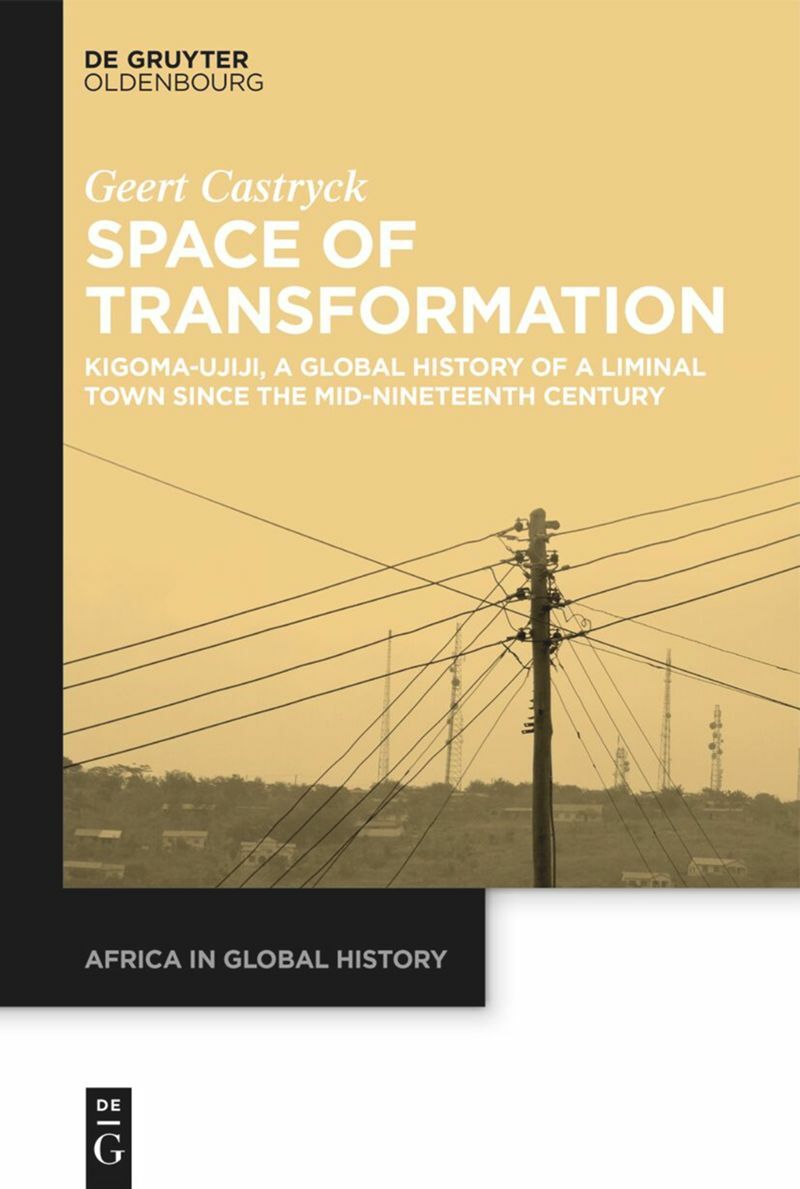 | | Space of Transformation: Kigoma-Ujiji, a Global History of a Liminal Town since the Mid-Nineteenth Century
By Geert Castryck
(De Gruyter Brill, 2025)
Drawing on a wide range of archives, historical publications, oral history, graphic, audiovisual and web sources, Geert Castryck presents Kigoma-Ujiji as both shaping and being shaped by global transformations. On the surface, the book offers almost two centuries of urban history on Lake Tanganyika in western Tanzania, close to the Burundian and Congolese borders, in a place that has been a transport hub throughout that time. Beneath the surface, it is also about major transformations on a global scale, and about people dealing with and coping with these global challenges far from the supposed global powerhouses. Urbanization and infrastructure, colonization and decolonization, liberalization and democratization, war refugees, world heritage and translocal identities are the entry points for interpreting transformations that are local and global at the same time. The author uses the analytical categories of "liminal space" and "portal of globalization" to link the marginality and uncertainty that characterize the successive transformations in Kigoma-Ujiji with the urban resilience and creativity used to manage these transformations...[more]
| | | 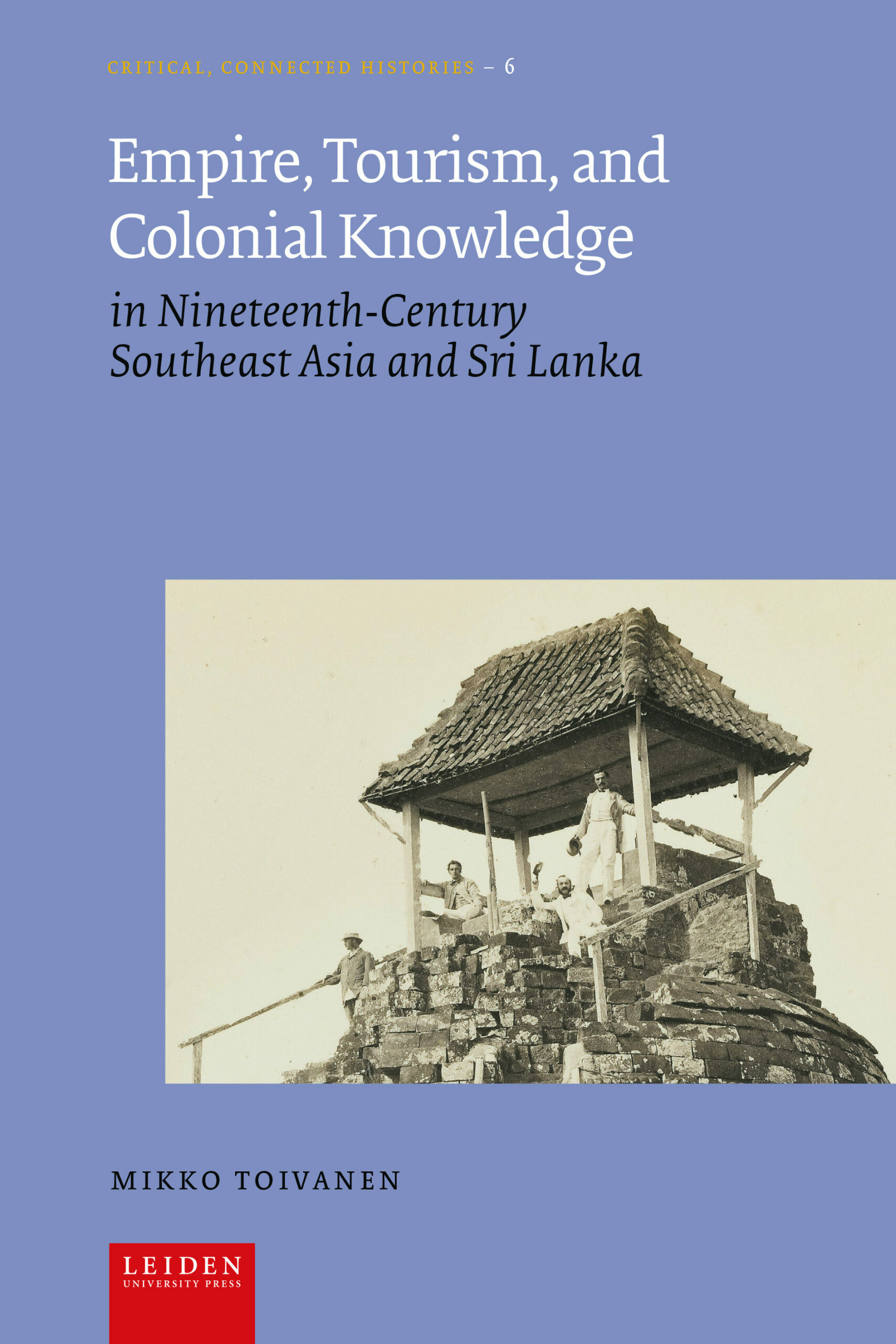 | | Empire, Tourism, and Colonial Knowledge: in Nineteenth-Century Southeast Asia and Sri Lanka
By Mikko Toivanen
(Leiden University Press, 2025)
This book provides a fresh reinterpretation of the global spread of modern leisure travel in the middle of the nineteenth century through a critical comparative reading of twenty-two works of popular travel writing from maritime Southeast Asia and Ceylon. The examination of these books reveals a coherent genre that was seemingly frivolous yet in fact intensely political, with shared rules and tropes that served to legitimise colonial rule and codify aspects of colonial culture in the popular metropolitan imagination. On the ground in Asia, the emergent practices and preferences of this new proto-tourism reinforced and played off contemporary processes of colonisation. The analysis employs a novel transimperial framework, analysing Dutch and British travellers and their journeys in the Dutch and British colonies of the region, revealing the importance of colonial proto-tourism in creating an encompassing culture of empire that traversed national and colonial boundaries...[more]
| | | | PHARMAKON: Urban Law and the Making of Johannesburg
By Eric Nyembezi Makoni
(University of Johannesburg Press, 2025)
Makoni takes us through the colonial and postcolonial lawscape of urban South Africa and especially Johannesburg, making a case for how injustice was established through planning laws, and all along trying to find ways in which justice can be achieved. This especially pernicious form of spatial violence is shown to have persevered throughout colonial history, with concrete examples of racial capitalism, where state and private initiatives were implicated. Makoni shows how the law has been a conspirator of colonial racialisation, and a precious yet precarious compass to help navigate the post-apartheid lands – the law as true pharmakon, with the trophy of spatial justice in the centre of legal concerns...[more] | | | | Urban peripherality, proximity and hostility in Mandate Palestine: the case of Bat Galim and HaTikvah neighbourhoods
By Elia Etkin
Urban History (June 2025)
This article explores the dynamics of urban peripheries in Mandate Palestine, focusing on the Jewish neighbourhoods of Bat Galim in Haifa and HaTikvah near Tel Aviv and Jaffa. It argues that the social and geographical isolation of these peripheries created a dual dynamic: strengthening bonds within the neighbourhood communities while also giving rise to significant conflicts, both within the Jewish society and in Jewish–Arab relations. Drawing on archival sources, letters and interviews, the research examines resident agency, social tensions and inter-communal interactions, demonstrating how these peripheries shaped urban society and culture under British colonial rule through processes of separation and connection...[more]
| | | 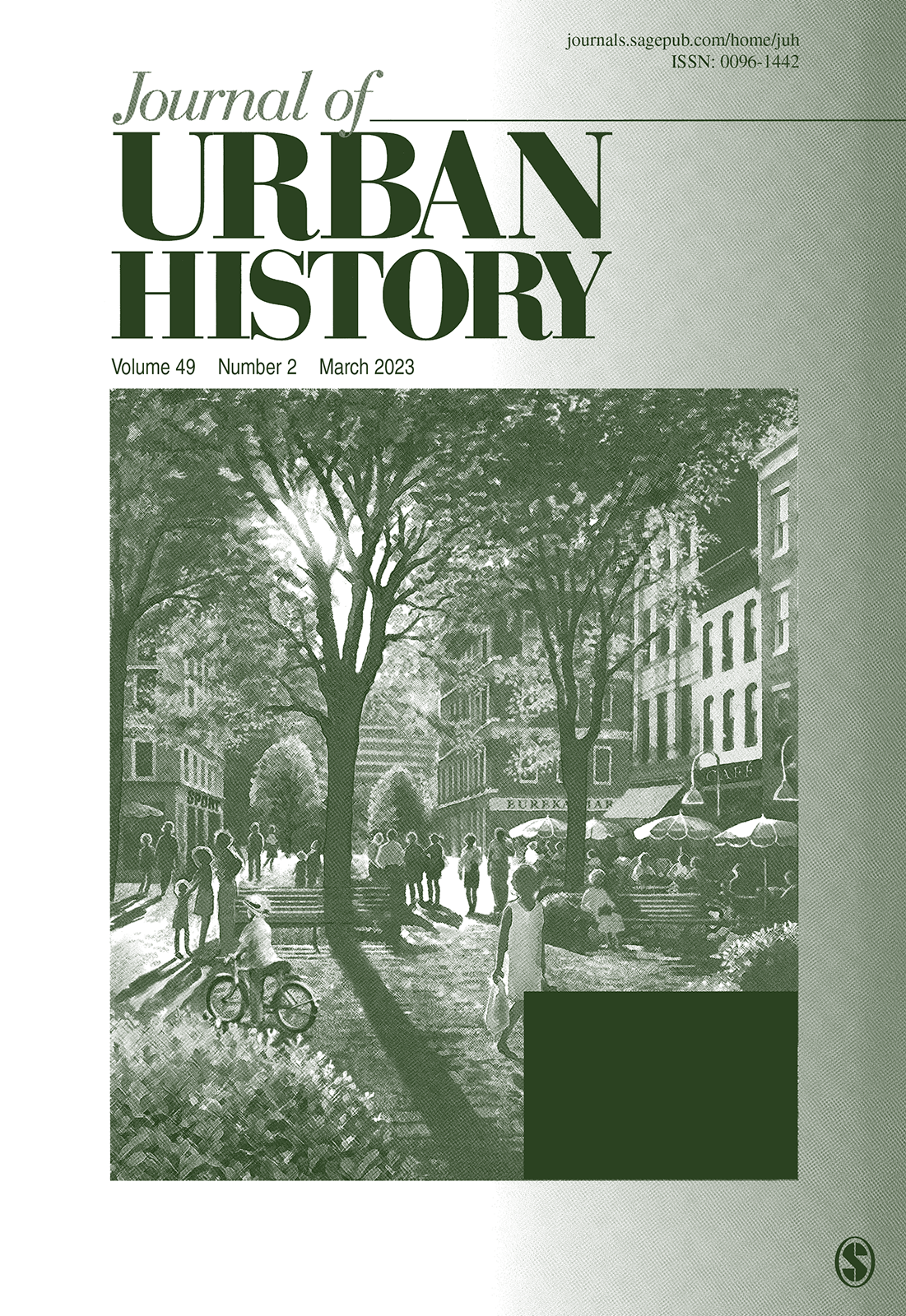 | | British Allotment to American Park: An Atlantic Crossing of the Garden Suburb Movement 1910–1930
By Robert Freestone and David Nichols
Journal of Urban History (March 2025)
Endorsement of open spaces internalized within residential blocks was an iconic concept promoted by the British garden city movement in the early twentieth century. Advancing various social goals, they were associated within a gendered ideology of domesticity, child safety, local food production, and community-centeredness. This article examines American responses through theoretical reformulation, endorsement, opposition, and uneven practical experiments situated against the maturing science of planned suburban development. Raymond Unwin included these spaces in a seminal morphological exposition, developing the concept of the quadrangle with a variety of uses including agricultural allotments, tennis courts, and playgrounds. Views of leading American community planners are canvassed, split between those promoting agricultural commons, landscaped gardens and playgrounds, and opponents citing upkeep and security concerns. Evolution of the interior park arguably peaked with Radburn which established a new iconic form and narrative of interior parks at a larger scale...[more]
| | | 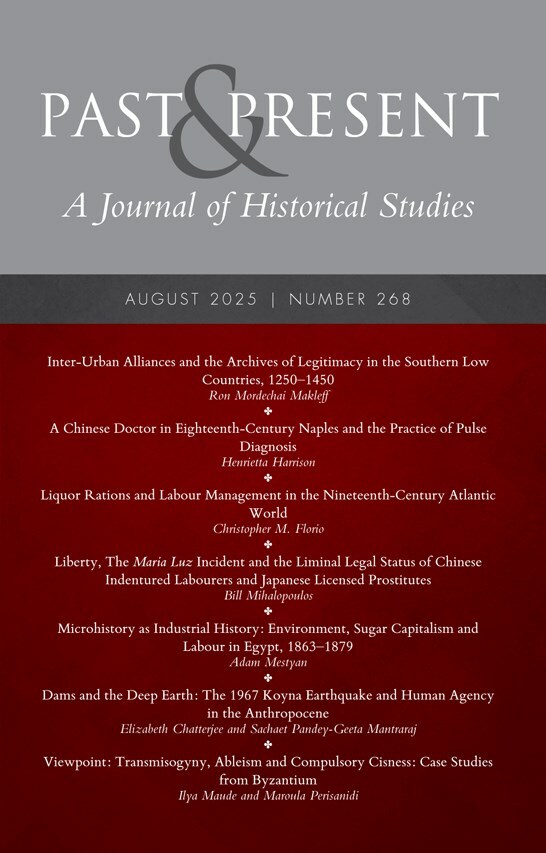 | | Colonial world-making and global knowledges at the early modern Cape of Good Hope
By Gianamar Giovannetti-Singh
Past and Present (August 2025)
As the Cape of Good Hope was integrated into early modern colonial world-making projects, it came to be regarded as ‘the western part of the East Indies’. The initial elaboration of this imaginary was contingent upon the contours of Dutch mobility in the Indian Ocean and material exigencies on the ground at the Cape. Early commanders sought to transform the colony’s environment, culture, and demographic constitution into a mirror of their productive East Indian colonies. Relatedly, some Indigenous Khoekhoe, forcibly transported to Java to train as colonial servants, came to understand Europeans — and the dangers they posed — in relation to the East Indies. This contingent colonial world-making soon gave rise to broader epistemic frameworks linking the southern African territory to Asia. European travellers began remarking on the purported similarities between the Cape’s plants, colonial customs and material culture, and Khoekhoe practices and those of the East Indies. By the end of the seventeenth century, some travellers even hypothesized that the Chinese had visited the Cape before the birth of Christ. Exploring the causes and consequences of the Cape’s integration into the East Indies, this article underlines how contingent geopolitical designations reshaped scholarly descriptions of natures and cultures in southern Africa...[more] | | | | Symposium: Challenging maps and exploration
Royal Geographical Society
London and online
October 30, 2025
Join us for a day of expert panels discussing the connections, historical and contemporary, between maps and exploration. This event is generously sponsored and co-organised by the Sunderland Collection. For each panel, speakers will present their thoughts on the theme via one or more maps. Then, the chair will lead the speakers through a discussion of the topic, followed by questions from the audience. At lunch, a table-top display of relevant maps will be shown in the Foyle Reading Room. The panels will be filmed and made available online at oculi-mundi.com after the event...[more]
| | | | Workshop: "Rethinking Gender in Inter- and Transimperial Contexts"
University of Freiburg, Germany
January 16-17, 2026
This two-day workshop brings together approaches that move beyond the metropole–periphery framework to examine how gender functioned in inter- and transimperial contexts. How did actors from different empires use gendered codes and behaviors in their interactions, and to what ends? Did they adopt certain gendered logics to gain recognition as imperial peers? In what ways did gender serve as a threshold for legitimacy and agency? Through such questions, the workshop highlights gender as a constitutive element of imperial power and identity—shaped by, and shaping, interactions across and beyond individual empires...[more]
| | | 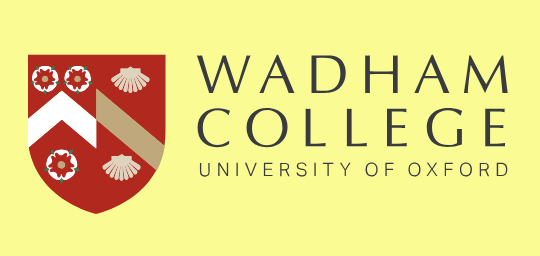 | | Workshop: "Cities and Decolonization: Anti-colonial Struggles, Urban Protest, and Global Solidarities"
Oxford, UK
March 19-20, 2026
The aim of the workshop is to reassess the relationship between the city and the struggle for decolonization in the colonial world. It brings together scholars examining anti-colonial movements in specific urban contexts in the twentieth century. The workshop seeks to foster dialogue on the relationship between anti-colonial protests and colonial cities in Africa and Asia, exploring how these struggles were shaped by diverse social groups, the spatial organization of urban environments, and the tensions between competing visions of anti-colonial practice. What role did cities play in shaping the dynamics of twentieth-century decolonization? This question continues to captivate scholars across disciplines. Contemporaries perceived revolutionary movements as originating from urban hubs and radiating outward into rural regions. Aristide Zolberg evocatively characterized anti-colonial movements as “creatures with a relatively large head in the capital and fairly rudimentary limbs.”[1] In contrast, postcolonial thinkers like Frantz Fanon, significantly influenced by Marxist scholarship, insisted that “the peasants alone are revolutionary.”[2] Historian Raymond Betts proposed a nuanced interpretation, suggesting anti-colonial movements were simultaneously “rooted in the countryside and grounded in the city...[more]
| | | Calls for Papers & Proposals |
CFP: "Liberties" Society for French Historical Studies 71st Annual Conference
Philadelphia, PA, USA
March 5-8, 2026
The Society for French Historical Studies invites proposal submissions for the 2026 annual meeting, which will take place in Philadelphia, Pennsylvania. In the city where the Declaration of Independence was signed 250 years ago, the theme of this year's conference is "Liberties." Plenary speakers include François Furstenberg (Johns Hopkins University), Jennifer Johnson (Brown University), and Ashli White (University of Miami). Conference sessions will take place at the Philadelphia Marriott Old City. Proposals are due September 15, 2025. We will circulate a submission portal link in early August. In the meantime, please feel free to reach out to sfhsphiladelphia@gmail.com with any questions that you may have. We invite submissions on any aspect of French history, but we particularly welcome submissions that engage the conference’s theme. We are also open to papers and panels that speak to wider European and/or Francophone geographies, such as histories of empire or colonization, transnational histories, and more...[more]
Submission deadline: September 15, 2025
|
CFP: "Disappearances and Preservations in World History" Special Issue
World History Bulletin
World History Bulletin is seeking quality research essays, experiential learning case studies, and classroom activities for inclusion in its upcoming Spring/Summer 2026 issue, “Disappearances and Preservations in World History.” The issue will explore how our understanding of the past evolves as we revisit, reconsider, and preserve history for future generations. The theme of “Disappearances and Preservations” raises important questions about who determines what is preserved and what is allowed to disappear, the criteria used to ensure preservation, the motives which inform disappearance or preservation, the evolution of techniques of preservation, the affect of the loss of historical material on future studies, and how selective preservation can prejudice current historical studies...[more]
Submission deadline: September 15, 2025
|
CFA: Session "Nonhuman Mobilities and Immobilities in the Colonial Built Environment"
VII CHAM International Conference, "On the Move – Diasporas, Mobilities and Transcultural Practices in a Changing World"
NOVA University Lisbon
April 16-17, 2026
Within the conference Panel 20: Nonhuman Mobilities and Immobilities in the Colonial Built Environment (EN) aims to critically explore the role of nonhuman agency in the shaping of colonial built environments with a focus on mobilities and immobilities. Drawing on approaches from new material and ecological history, STS studies and Actor-Network Theory explorations on architecture (among others: Law 2008, Latour and Yaneva 2008, Yaneva 2008, 2019, Kärrholm 2014, Riello 2016, Dincer 2020, Trigg 2024), this panel seeks to investigate how nonhumans (materials, animals, etc.) actively participated in the making - and unmaking - of colonial spaces. How do nonhuman-centred methodologies offer new insights into the built environment dimensions of colonialism? What happens when we recenter the agency off of humans/persons in historical accounts of the built environment? Nonhuman movement and immobility are understood as dynamic processes through which power, resistance, and transformation were negotiated within (trans)imperial frameworks. Rather than conceptualising nonhumans as passive or merely extractable bodies, this panel foregrounds their capacity to shape built environment (architectural, urban, landscape, etc.) forms and practices. How do the circulation, obstacles, or local adaptation of nonhumans connect distant sites, shaping shared yet unequal, colonial materialities? Proposals that examine, among other possible themes, how specific nonhuman actors engaged in architectural production; how their mobilities and immobilities contributed to or resisted imperial ambitions; the transformation of mobilities and immobilities or their impacts across long chronological scopes; diverse colonial and transcolonial contexts; focus on specify sources (like visual sources or periodical colonial press); are very welcomed. By situating nonhuman agency at the heart of colonial histories, this panel aims to foster interdisciplinary dialogue on the entanglements between nonhumans and imperial power....[more]
Submission deadline: September 30, 2025
|
CFA: Session "Making Cities Visible. Global Perspectives on Urban Image-Production and Circulation (19th -20th centuries)"
EAUH Conference, Barcelona, Spain
September 2-5, 2026
Session organizers: Christina Reimann (University of Gothenburg), Malte Zierenberg (Humboldt-University Berlin)
Since the age of printmaking and boosted by photography, cities have been hubs for producing and distributing images locally and globally. This panel explores the urban imprint of the making of a ‘society of images’ by examining international visual discourses and local peculiarities, and by challenging Western-centric views on urban modernity...[more]
Submission deadline: October 22, 2025
|
CFA: Session "Rethinking modern urban infrastructures in the light of the Anthropocene (19th/21th century)"
EAUH Conference, Barcelona, Spain
September 2-5, 2026
Session organizers: Christoph Bernhardt (HU Berlin) and Nathalie Roseau (ENPC, LATTS Paris)
The contribution, over the last three centuries, of urbanization processes (technical, social, economic, political, cultural) to the “Anthropocene” - that is to say, the alteration of the biosphere by human activities, which is showing dramatic consequences for the planetary environmental boundaries – calls for a rethinking of approaches and subfields of urban history through the prism of the Anthropocene. Although the term “Anthropocene” is contested in public and scientific debates, the transdisciplinary controversies on this issue over the past two decades can help to reformulate research questions to urban history and to innovate established concepts in urban political, cultural and environmental history. In this perspective, the session focuses on urban infrastructures, and invites to reexamine the
emergence and ecological footprint of urban networks (water, mobility, energy, waste, data, etc.) in their spatial and material scales, their socio-political configurations, and their human and non-human agencies. Contributions, grounded in empirical research, are expected to promote the interference of the fields of urban history and Anthropocene issues....[more]
Submission deadline: October 22, 2025
|
CFA: Session "Knowledge in Interurban Transit. Networks, Actors, and Agencies"
EAUH Conference, Barcelona, Spain
September 2-5, 2026
Session organizers: Heidi Hein-Kircher (Herne/Bochum) and Oliver Hochadel (Barcelona)
The urban space of the modern city was characterized by a high concentration of short-distance relations, multi-directional exchanges within and the acceleration of movement and communication. This session focusses on interurban knowledge exchange and its networks. The “densification” within the city and the numerous social challenges were instrumental for the development of new fields of “applied urban knowledge” such as urban planning, hygiene and cultural infrastructures so that the inherent dynamic of the urban space and the production of applied urban knowledge entered a dialectic relationship. Hence, knowledge became key for urban development. Disregarding national borders, urban reformers in different cities became increasingly aware that they were facing similar problems with respect to public health and urban planning. Many city councils reached out to other cities all over Europe or even globally in order to modernize their own city. Such solutions were sought after in the form of “best practices” from other urban contexts, which were considered as “recipes for success”. This distinctly pragmatic approach also promised to avoid errors that had been committed elsewhere, while being “late” or “backward” might turn out to be advantageous, and could be used by reformers rhetorically as political leverage to demand new technologies or urban planning concepts. Urban knowledge was permanently altered, combined, hybridized and adapted to fit the specific needs and circumstances of a city...[more]
Submission deadline: October 22, 2025 | Fellowships, Grants, & Awards |  | | Paid Internships in Global History
Past Wrongs, Future Choices and Globalink Research Internships
The Past Wrongs, Future Choices (PWFC) partnership— is a global partnership of universities, museums, and community organizations collaborating to tell the history of the uprooting, incarceration, and dispossession of people of Japanese descent (Nikkei) in allied countries in the 1940s – has recently been approved for three paid internships for undergraduate students, and we are hoping to recruit at least one of them from the United States. The Globalink Research Internships are fully funded (travel, accommodation, stipend) positions available students in at least their second year of study. Successful applicants will be in residence for a 12-week span in beautiful Victoria, Canada between May and October 2026. The applications are due between August 6, 2025 and September 17, 2025. We are especially looking for applicants from the United States, the UK, Brazil, and Mexico...[more]
Application deadline: September 17, 2025
| | | |